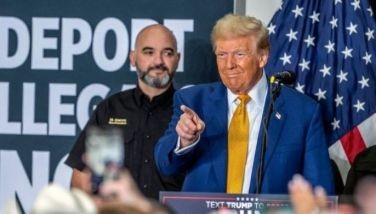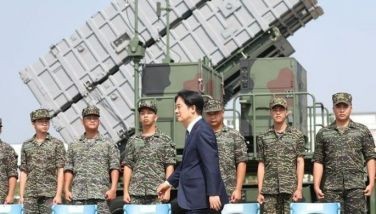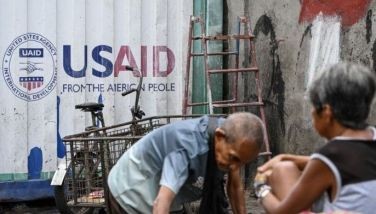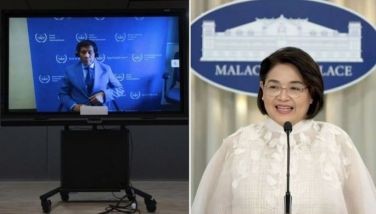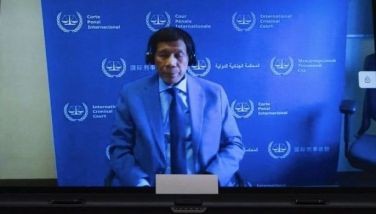US isolated as allies line up to join China-led bank
WASHINGTON — U.S. resistance to a Chinese-led Asian regional bank has left it isolated among its Asian and European allies and given some heft to China's frequent complaints that Washington wants to contain its rise as a world power.
South Korea, one of America's closest friends in Asia, announced Thursday it will join the Asian Infrastructure Investment Bank, or AIIB, which is intended to help finance construction of roads and other infrastructure. Beijing has pledged to put up most of the initial $50 billion in capital for the bank, which is expected to be set up by year's end.
The U.S. has expressed concern the new bank will allow looser lending standards for the environment, labor rights and financial transparency, undercutting the World Bank, where the U.S. has the most clout, and the Asian Development Bank, where it is the second-largest shareholder after Japan.
But since Britain broke with Washington two weeks ago and announced it was signing up for the AIIB, the floodgates have opened. France, Germany, Italy and Switzerland quickly followed. On Wednesday, Prime Minister Tony Abbott heavily hinted Australia would also join.
While Japan, which has tense relations with China, is still holding out, the Obama administration appears increasingly at odds with sentiment in the very region where it has striven to forge closer ties for the past five years. India and all 10 members of Southeast Asia's regional bloc are among the more than 30 governments that have so far sought to join the bank before a March 31 deadline.
That has prompted handwringing among Asia-watchers in Washington. Many policy experts have been urging for months that the U.S. has a better shot at reforming the new bank from inside the tent than outside.
"By maintaining their distance from the bank, American and Japanese responses seem problematic at best and churlish at worst," wrote Jonathan Pollack, a specialist on East Asia at the Brookings Institution.
"It is a small-potato issue that is making the United States look weak at a time when U.S. influence in the region is otherwise quite strong," said Elizabeth Economy, director for Asia studies at the Council on Foreign Relations.
China has been reveling in Washington's unease.
After the European nations signed up, a commentary in the official Xinhua news agency began triumphantly: "Welcome Germany! Welcome France! Welcome Italy!"
Writer Tian Dongdong accused the U.S. of "sour grapes" and hypocrisy, noting that President Barack Obama has urged a rising China to shoulder more international obligations.
Australia's Mandarin-speaking former prime minister, Kevin Rudd, said Tuesday the emergence of AIIB was part of China's geopolitical reaction to "the door being slammed in its face" over increasing the voting quotas of developing countries at the International Monetary Fund and World Bank, currently skewed in favor of the U.S.
Congress has refused to support the proposed quota changes at the IMF — and congressional approval of U.S. membership of an international lender led by strategic rival China would also be a hard sell.
State Department spokesman Jeff Rathke said Thursday the U.S. would welcome new institutions that could help meet the pressing need for infrastructure funding and incorporate high standards but it was "not considering joint any new institution at the moment."
The risk of sticking to that path is that Obama's commitment to make Asia a higher priority will appear too focused on security concerns.
Obama has pushed a 12-nation pan-Pacific trade pact to beef up commercial ties, but the pact still faces stiff opposition from Obama's own Democratic Party, leaving doubt over whether it can be finalized this year.
Vikram Nehru, an expert on Southeast Asia at the Carnegie Endowment for International Peace, said Chinese officials have made positive statements about the new bank cooperating with other lenders. He said the AIIB would benefit from tapping into the experience of the Asian Development Bank and World Bank, and supporting projects that those lenders already have in the pipeline.
- Latest
- Trending





















